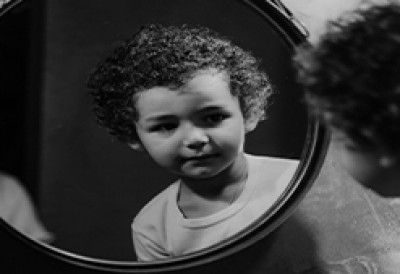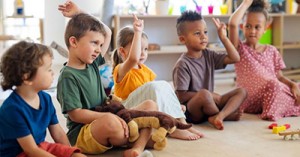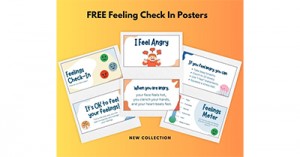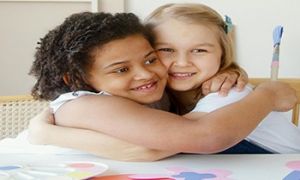Helping kids develop self-awareness in early childhood is crucial for their emotional intelligence, decision-making, and social interactions. The following article provides information on Strategies To Develop Self Awareness, Activities To Practice Self Awareness, How Does Self Awareness Contribute To Emotional Intelligence In Children, What Other Skills Should I Focus On Alongside Self Awareness, How Can I Integrate These Activities Into Daily Routines and more.
Strategies To Develop Self Awareness
- Encourage Self-Reflection: Ask children about their feelings and experiences to help them recognize their emotions.
- Model Self-Awareness: Demonstrate self-awareness in your own actions so they can learn by example.
- Practice Mindfulness: Simple mindfulness exercises can help children focus on the present moment and understand their thoughts and emotions.
- Teach Emotional Recognition: Help kids identify and label their emotions, which fosters better emotional regulation.
- Support Social Understanding: Encourage empathy by discussing how others might feel in different situations.
- Boost Self-Confidence: Help children develop a strong sense of self by supporting their opinions and encouraging resilience.
Activities To Practice Self Awareness
Here are some fun and effective activities to help kids develop self-awareness:
- Emotion Charades: Kids act out different emotions while others guess, helping them recognize and express feelings.
- Feelings Journal: Encourage children to write about their daily experiences and emotions to reflect on their thoughts.
- Strengths Collage: Using magazines, scissors, and glue, kids create a collage representing their strengths and interests.
- Mirror Talk: Have kids look in the mirror and say positive affirmations about themselves to boost self-confidence.
- Emotion Wheel: A visual tool where kids identify and label their emotions, improving emotional regulation.
- Observation Scavenger Hunt: Encourage mindfulness by asking kids to notice details in their surroundings.
- Positive Affirmations: Teach kids to repeat uplifting statements about themselves to build self-esteem.
How Does Self Awareness Contribute To Emotional Intelligence In Children
Self-awareness is a foundational pillar of emotional intelligence in children, shaping their ability to understand and manage emotions effectively. Here’s how it contributes:
- Recognizing Emotions: Self-aware kids can identify their feelings, making it easier to regulate emotions and respond appropriately.
- Understanding Emotional Triggers: They learn what situations make them happy, frustrated, or anxious, helping them navigate challenges with confidence.
- Building Empathy: When children understand their own emotions, they can better relate to how others feel, fostering stronger social connections.
- Improving Decision-Making: Self-awareness helps kids make thoughtful choices rather than reacting impulsively.
- Enhancing Communication Skills: They can express their emotions clearly, leading to healthier relationships and conflict resolution.
What Other Skills Should I Focus On Alongside Self Awareness
Alongside self-awareness, here are other essential skills to focus on for a child's overall development:
- Self-Regulation: Helps kids manage emotions and behaviors effectively.
- Empathy: Encourages understanding and compassion toward others.
- Critical Thinking: Develops problem-solving and decision-making abilities.
- Communication Skills: Enhances expression and active listening.
- Resilience: Builds perseverance and adaptability in challenging situations.
- Social Skills: Strengthens relationships and teamwork.
- Growth Mindset: Encourages learning from mistakes and embracing challenges.
What Activities Can I Use To Develop These Skills?
Here are some engaging activities to help kids develop self-regulation, empathy, critical thinking, communication, resilience, social skills, and a growth mindset:
- Deep Breathing Exercises: Teach kids to take slow, deep breaths to calm themselves during stressful moments.
- Emotion Charades: A fun game where kids act out different emotions while others guess, helping them recognize and express feelings.
- Role-Playing Empathy: Children act out different perspectives to practice understanding other people’s emotions.
- Listening Pairs: Kids take turns sharing a thought or feeling while their partner practices active listening.
- Kindness Bingo: A game where kids complete acts of kindness to reinforce empathy and social skills.
- Creative Expression: Arts and crafts provide a creative outlet for children to express their feelings.
- Growth Mindset Challenges: Encourage kids to embrace mistakes and learn from them through problem-solving activities.
- Social Skills Interventions: Activities like modeling positive behavior and practicing self-awareness help kids build strong relationships.
How Can I Integrate These Activities Into Daily Routines?
Integrating self-awareness activities into daily routines can be simple and effective. Here are some ways to do it:
- Morning Check-In: Start the day with a quick reflection on emotions and goals.
- Mindful Moments: Encourage kids to pause and notice their feelings throughout the day.
- Storytelling Time: Read books that explore emotions and self-awareness.
- Conversations: Ask open-ended questions about their day and how they felt.
Further Reading
Metacognition For Preschoolers
Developing A Child's Strong Sense Of Identity
Descriptive Praise and Appreciative Praise
All About Me Theme Activities For Toddlers and Preschoolers







 Open ended questions cannot be responded to with one word answers such as yes or no. These types of questions enables a child to provide
Open ended questions cannot be responded to with one word answers such as yes or no. These types of questions enables a child to provide During your child’s preschool years, an important milestone begins to emerge. This is the development of pre-writing skills. Pre-writing skills are used to encourage, develop
During your child’s preschool years, an important milestone begins to emerge. This is the development of pre-writing skills. Pre-writing skills are used to encourage, develop Open ended materials enables children to play freely. They are objects that have no rules to follow, use or function. Raw materials that can be
Open ended materials enables children to play freely. They are objects that have no rules to follow, use or function. Raw materials that can be An Acknowledgment of the Country is a way of showing respect for the Traditional Owners and can be given by both non-Indigenous people and Aboriginal
An Acknowledgment of the Country is a way of showing respect for the Traditional Owners and can be given by both non-Indigenous people and Aboriginal Language plays an important role in a child’s development. It enables a child to communicate effectively with their family, learn at school, socialize with friends,
Language plays an important role in a child’s development. It enables a child to communicate effectively with their family, learn at school, socialize with friends, Like adults, children have to deal with their own stress in life. Moving house, starting a new school, preparing for a new sibling - these are
Like adults, children have to deal with their own stress in life. Moving house, starting a new school, preparing for a new sibling - these are Playdough is such a versatile material. It provides numerous benefits to children as they manipulate it, it is safe and soothing and provides children with
Playdough is such a versatile material. It provides numerous benefits to children as they manipulate it, it is safe and soothing and provides children with Teaching children about sustainability enables them to appreciate and respect the natural environment. Early childhood services can provide meaningful hand on learning experiences in order
Teaching children about sustainability enables them to appreciate and respect the natural environment. Early childhood services can provide meaningful hand on learning experiences in order Recycling is an important concept that teaches children to care for the environment. It encourages children to be responsible and show a growing appreciating for
Recycling is an important concept that teaches children to care for the environment. It encourages children to be responsible and show a growing appreciating for When children apply paint to paper, glue things together, or pound a lump of clay, they experiment with colour, shape design and texture.
When children apply paint to paper, glue things together, or pound a lump of clay, they experiment with colour, shape design and texture.



